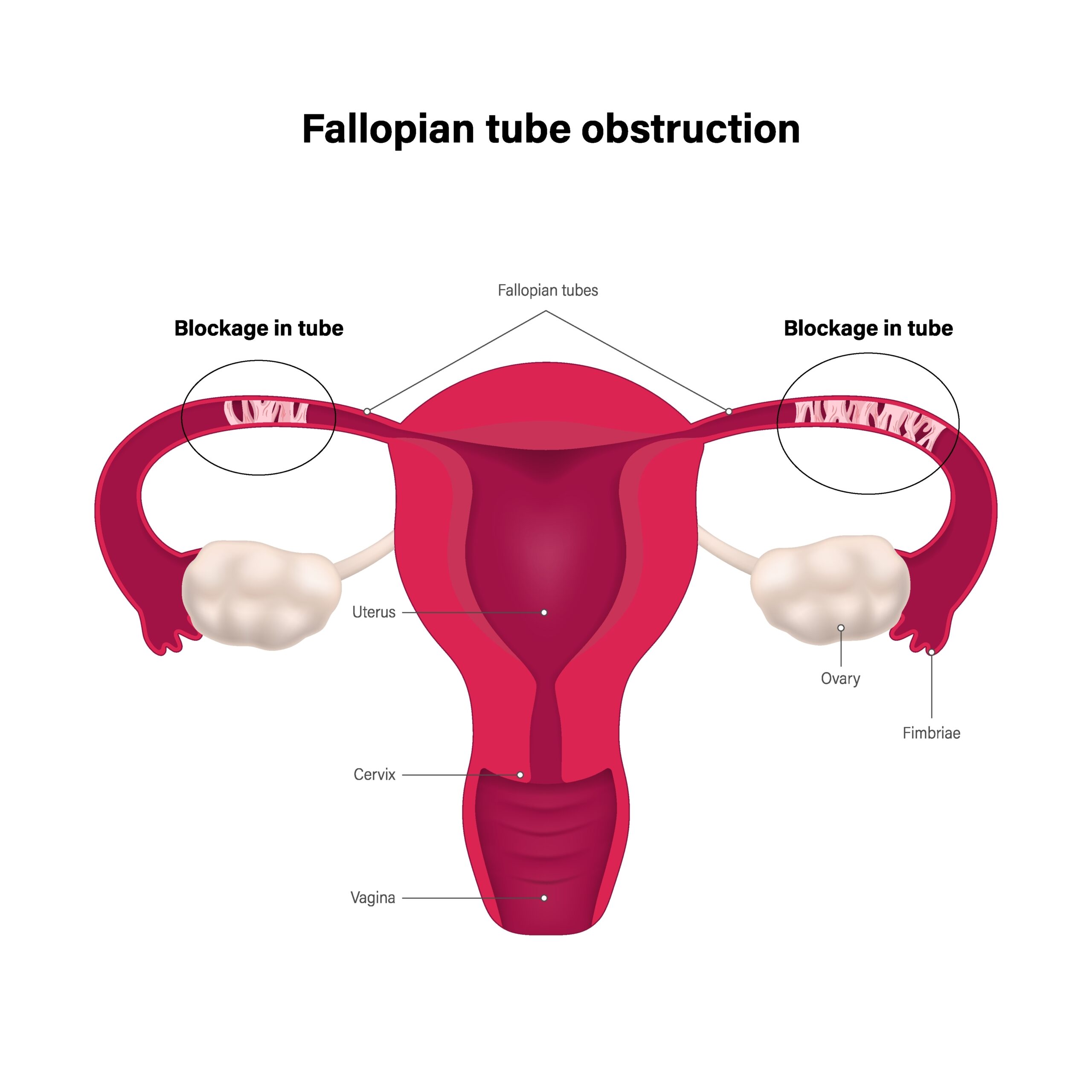
What Are Fallopian Tubes and Why Are They Important for Fertility?
The fallopian tubes are thin, muscular structures about 10–12 cm long that connect the ovaries to the uterus. These tubes play a critical role in natural conception, serving as the pathway through which an egg (oocyte) travels to meet sperm for fertilization.
For successful fertilization, the fallopian tubes must be:
Blocked fallopian tubes are one of the most common causes of female infertility. When one or both tubes are blocked, the egg and sperm cannot meet, making natural pregnancy difficult or impossible.
There are several conditions and risk factors that can cause blockages, including:
If your doctor suspects tubal blockage, they may recommend one of the following tests:
A special X-ray using a contrast dye is performed to visualize the uterus and fallopian tubes. If the dye doesn’t pass through the tubes, a blockage is likely.
Also known as a saline ultrasound, this test uses a sterile saline solution and ultrasound to assess the shape of the uterus and the openness of the tubes. It can usually be performed right in your gynecologist’s office.
If both tubes are blocked, natural pregnancy is not possible. Surgical procedures to reopen the tubes are available but often have low success rates, especially if there’s significant damage or scarring.
For women with blocked fallopian tubes, In Vitro Fertilization (IVF) offers the highest chance of success. IVF completely bypasses the fallopian tubes by:
At Sakalli IVF, we offer personalized, evidence-based fertility treatments tailored to your needs. Whether you’ve been diagnosed with blocked fallopian tubes or are still exploring the cause of infertility, our expert team is here to guide you every step of the way.
✅ Book a consultation today and take the first step toward your dream of parenthood.
📞 Contact us now — your journey to a family starts here.
Copyright © Sakalli IVF. All rights reserved